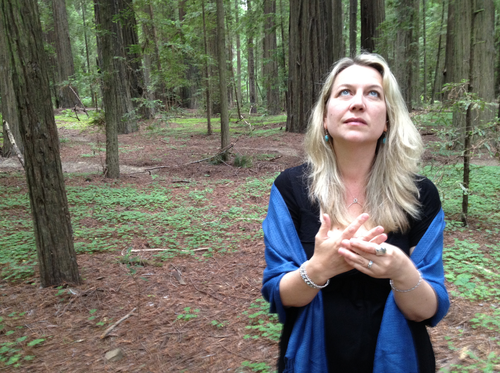
Cheryl Strayed is the bestselling author of Wild, and was the long-time secret voice behind the advice column Dear Sugar. It has been said that Strayed writes from the gut, but I would argue she writes from a place of primordial wisdom that has the effect of punching you in the gut.
– Marie-Hélène Westgate
THE BELIEVER: What was it like to write your very first Dear Sugar column?
CHERYL STRAYED: Terrifying. I wanted to be as funny and brilliant as Steve Almond, since he’d been writing the column until I took over. But who can do that? Not me.
BLVR: Were there any letters that you felt exceeded your capacity to answer them?
CS: I’ve received a few questions from pregnant women who were mid-way through their pregnancies and trying to decide whether they should keep their babies or give them up for adoption. In each case, they were educated women in their twenties with modest financial resources who didn’t intend to get pregnant, but who, from what I could tell in their letters, would be fine mothers should they choose to go that route. Instead of writing a column, I wrote to those women privately, offering words of support. I didn’t write a column because I don’t feel comfortable coming down on one side or another about such a profoundly gigantic decision.
BLVR: When I was reading Tiny Beautiful Things, your collected columns, I fell asleep every night for a month with the book in my arms. Is there a book you’ve cradled through tough times?
CS: Books have always been a great solace to me. Alice Munro’s Lives of Girls and Women is the book I’ve come closest to cradling. When I was in grad school at Syracuse I had to write a long critical paper about one book and that’s the one I chose. When my peers critiqued it one of them told me he thought I gushed too much. He felt like Munro and I should “get a room.” I was stung by his words at the time, but he was right. I love that book with that kind of passion.
BLVR: How different was your experience of the release of Torch, which was your first book and a novel, and that of your memoir, Wild—which exploded into the public six years later?
CS: Both were incredibly exciting, rewarding experiences. Torch was not an international bestseller like Wild is, but it was a success in all the ways a writer can reasonably measure success: I wrote the best book I could write in that moment of my life. It was published well and reviewed widely and it reached an audience who appreciated the book. The experience I’ve had with Wild is on such a different scale I can’t wrap my mind around it. The most shocking thing of all to me is how many people have read the book. I’ve had to almost shield myself from the response just so I can function. There hasn’t been a day in this past year that I haven’t thought: Holy cats!
BLVR: What would you say your greatest obstacle has been, as a writer and as a human?
CS: Being okay with people not loving me.
BLVR: In your essay about losing your mother, “The Love of My Life,” you write, “healing is a small and ordinary and very burnt thing. And it’s one thing and only one thing: it’s doing what you have to do.” Is there something that’s the “one thing” you’ve always had to do; that life has tried to keep you from doing; that you’ve veered away from doing time and time again; that you’ve believed you weren’t worthy of doing?
CS: The one thing I’ve had to do my entire adult life is live without my mother. It’s awful. It never stops being awful. I didn’t (and don’t) have a dad who loved me well. I only had a mom who did and I will always feel the loss of her in my life. In my own small and ordinary and very burnt healing, I’ve learned how to accept the fact of her absence, to surrender to it, and that has been a radical—by which I mean core—act.
BLVR: Do you ever imagine what your mother would say to you if she could see you now?
CS: After my mom died I could not imagine my life without her, but now she’s been dead long enough that I can’t imagine my life with her. For many years after she died, whenever I thought of what she might say to me the word GO came to mind. Go, as in go and get this life, go and pursue your passions the way I couldn’t. I have done that. I’ve tried to live for both of us. I think she’d be proud of me.
Photo by Brian Lindstrom




